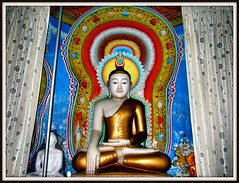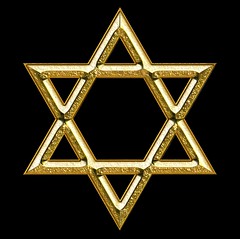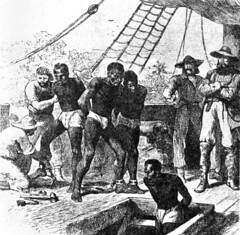World History Quarter 1 Review Flashcards
Terms : Hide Images [1]
| 7568376400 | specialization | to focus in on one specific task and get good at it |  | 0 |
| 7568376401 | Paleolithic Era | time period of the Stone Age where people focused on hunting and gathering and language was not yet spoken |  | 1 |
| 7568376402 | Neolithic Era | also called the New Stone Age; classified by people beginning to establish villages and civilizations through farming. Language was developed, making it the defining characteristic of the start of this period. |  | 2 |
| 7568376403 | cuneiform | first written language; originated in Mesopotamia |  | 3 |
| 7568376404 | hieroglyphics | written language by the Egyptians; pictures stand for words |  | 4 |
| 7568376405 | Rosetta Stone | used to help interpret hieroglyphics |  | 5 |
| 7568376406 | Hammurabi's Code | strict Babylonian law that was used to enforce order in society; ex. an eye for an eye, a hand for a hand |  | 6 |
| 7568376407 | Buddhism | ancient religion founded in India by Siddhartha Gautama; goal is to reach Enlightenment or nirvana |  | 7 |
| 7568376408 | 4 Noble Truths | guides the religion of Buddhism |  | 8 |
| 7568376409 | Middle Way | In Buddhism, this is the in-between being a total ascetic and living a life of pure luxury |  | 9 |
| 7568376410 | Moksha | in Hinduism, this is the term that means you are released from Samsara (cycle of birth, death and rebirth) |  | 10 |
| 7568376411 | Judaism | first monotheistic religion founded by Abraham |  | 11 |
| 7568376412 | Confucianism | religion/way of life that emphasizes respect for elders and traditional values |  | 12 |
| 7568376413 | hunter-gatherer | earliest way of life in which people would search and kill animals for their food |  | 13 |
| 7568376414 | Agricultural Revolution | period of time where people moved from hunting and gathering to permanent villages where they would farm for life |  | 14 |
| 7568376415 | Persian Wars | series of wars between Greek city-states and the Persians for control of the Peloponnesian Peninsula |  | 15 |
| 7568376416 | Herodotus | Greek; known as the "father of history" |  | 16 |
| 7568376417 | The Royal Road | highway through the Persian empire used to exchange goods and services easier/quicker |  | 17 |
| 7568376418 | democracy | government by the people; first seen in Athens, Greece |  | 18 |
| 7568376419 | Thucydides | historian that studied Athens and Greek history and wrote detailed accounts about them |  | 19 |
| 7568376420 | Sparta | militarily strong Greek city-state; Council of Elders ruled their government |  | 20 |
| 7568376421 | Athens | democracy Greek city-state; led by the Council of 500 to rule their government; intelligence/schooling was the focus of their society |  | 21 |
| 7568376422 | Olympia | place in Greece where the Greek gods lived |  | 22 |
| 7568376423 | Ionia | wanted to gain independence away from the Persians, thus choose to align themselves with the Greeks, starting war with between the Greeks and Persians |  | 23 |
| 7568376424 | Alexander the Great | greatest leader of Greek times; was able to conquer large area of the Mediterranean; gave way to the Hellenistic Period |  | 24 |
| 7568376425 | Golden Age of Greece | period of time where Greece was at peace and society was prospering/growing |  | 25 |
| 7568376426 | Hellenistic Period | time where Greek ideas/culture was spread all over the Mediterranean |  | 26 |
| 7568376427 | Christianity | religion in which Jesus is said to be the Messiah; monotheistic |  | 27 |
| 7568376428 | Patricians | Rich, upper-class in early Roman society |  | 28 |
| 7568376429 | Plebians | lower class; usually peasants in Roman society |  | 29 |
| 7568376430 | Punic Wars | battles between Carthage and Rome over control of the Mediterranean, Spain and Italy |  | 30 |
| 7568376431 | Pax Romana | time period of Roman Peace; trade flourished and Christianity fled |  | 31 |
| 7568376432 | princep | highest title given to a Roman citizen; also means first citizen |  | 32 |
| 7568376433 | Marcus Aurelius | Roman emperor from 161-180; is seen as the last great Roman emperor out of the 5 good emperors |  | 33 |
| 7568376434 | Julius Caesar | Roman emperor who helped to bring Rome to peace and grow the economy; was murdered in fear of his growing strength |  | 34 |
| 7568376435 | Caesar Augustus | named first "princep"; most popular Roman Emperor who conquered much of the Mediterranean |  | 35 |
| 7568376436 | Divide of Rome | split into the East and West; East continued to survive for years to come, while the west would eventually fall |  | 36 |
| 7568376437 | Byzantine Empire | continued to exist in the East, even after the Roman Empire Fell; new name given to this empire |  | 37 |
| 7568376438 | aqueducts | Roman invention that was used to transport water from place to place |  | 38 |
| 7568376439 | public bath | place where Roman citizens would gather to bathe together |  | 39 |
| 7568376440 | Fall of Western Roman Empire | empire fell due to invaders, weakening leaders, struggling economy (inflation) and an empire that was too large to control |  | 40 |
| 7568376441 | Constantine | emperor of the Byzantine empire who made Christianity the official religion of the empire |  | 41 |
| 7568376442 | Aztecs | group located in central Mexico; sacrificed thousands of people to their gods and had floating gardens on the land that they lived |  | 42 |
| 7568376443 | Mayans | early society located on the Yucatan Peninsula in Mexico; known for creating their own calendars and slash/burn farming; never fell, instead some of their culture has faded into the jungle |  | 43 |
| 7568376444 | Incas | early civilization located in the Andes mountains; is known for its extensive roads and quipu communication system |  | 44 |
| 7568376445 | Vedic India | first society after the fall of the Indus River Civilization ran by the Aryan people |  | 45 |
| 7568376446 | varnas | classes in Aryan society |  | 46 |
| 7568376447 | dynasty | a line of hereditary rulers; mostly seen in China |  | 47 |
| 7568376448 | Qin Dynasty | ruler was Shi Huangdi; built the Great Wall of China; known for using harsh Legalist policies that included book burning of Confucian scholars |  | 48 |
| 7568376449 | Shi Huangdi | emperor during the Qin Dynasty; put into effect Legalism; Terra Cotta Army buried with him |  | 49 |
| 7568376450 | Great Wall of China Uses | defense and trade |  | 50 |
| 7568376451 | Mandate of Heaven | gave reason for the change in the dynastic cycle; for all the good that occurred, so would dynastic leaders stay in power; when something bad occurred it would tell the people that dynasties needed to switch power |  | 51 |
| 7568376452 | dynastic cycle | period of time of Chinese rulers |  | 52 |
| 7568376453 | civil servants | government employees who gained their positions through merit in China |  | 53 |
| 7568376454 | civil service exam | extremely difficult test given to those who wanted to serve in the government; based on Confucian thought |  | 54 |
| 7568376455 | Legalism | policy created by Shi Huangdi |  | 55 |
| 7568376456 | Daoism | seeks harmony through nature and balance |  | 56 |
| 7568376457 | Jainism | belief in nonviolence; branch of Hinduism |  | 57 |
| 7568376458 | Chandragupta Maurya | founded the Mauryan dynasty in India |  | 58 |
| 7568376459 | Ashoka | united India and the Maurya dynasty under the religion of Buddhism |  | 59 |
| 7568376460 | Genghis Khan | united the Mongols and invaded China |  | 60 |
| 7568376461 | Kublai Khan | was able to conquer China and spread Mongol influence throughout Asia |  | 61 |
| 7568376462 | Silk Road | most ancient and important trade route that stretched from Asia to Europe |  | 62 |
| 7568376463 | Pax Mongolica | Period of Mongol Peace |  | 63 |
| 7568376464 | Marco Polo | Italian explorer who found the glories of China, wrote a book and shared his traveling experiences |  | 64 |
| 7568376465 | Swahili | language and culture of Eastern Africa Cities |  | 65 |
| 7568376466 | West African Kingdoms | early kingdoms of Ghana, Mali and Songhai |  | 66 |
| 7568376467 | African Trade | most important products were gold and salt |  | 67 |
| 7568376468 | Timbuktu | major Islamic city of learning and trade | 68 | |
| 7568376469 | Mansa Musa | traveler from Mali on a pilgrimage to Mecca; spread Islam and put Mali on the map; was known for carrying gold and simply giving it away on his journey; built up the city of Timbuktu with Muslim culture |  | 69 |
| 7568376470 | Islam | religion founded by the prophet Muhammad; follows the 5 Pillars as a guide to this religion |  | 70 |
| 7568376471 | Groups of Islam | Sunni (believe anyone can be a ruler of Islam) and Shiah (believe only Muhammad's descendants can be rulers of Islam) |  | 71 |
| 7568376472 | Muhammad | founder of Islam; known as the Islamic prophet/messenger of God |  | 72 |
| 7568376473 | Qur'an | the holy book of Islam |  | 73 |
| 7568376474 | Allah | Islamic word for God |  | 74 |
| 7568376475 | Orthodox Church | the eastern church of the Byzantine Empire |  | 75 |
| 7568376476 | Hagia Sophia | symbol of the Eastern Orthodox Church |  | 76 |
| 7568376477 | feudalism | system of loyalty in which Kings, Nobles, Knights and Serfs worked together to protect each other and create a society of order |  | 77 |
| 7568376478 | Black Plague/Black Death | deadly disease that wiped out 1/3 of Europe's population; led to an age of increased ideas and knowledge |  | 78 |
| 7568376479 | Charlemagne | Frank King who was able to unite much of Europe under one Christian empire |  | 79 |
| 7568376480 | guild | a medieval association of craftsmen or merchants, often having considerable power |  | 80 |
| 7568376481 | chivalry | code lived by all Knights during feudal times |  | 81 |
| 7568376482 | theocracy | government in which the person who is in charge is a representative of the church; church rules government |  | 82 |
| 7568376483 | monarchy | government where the king is in charge; when the king dies, his heir (often his son) takes over |  | 83 |
| 7568376484 | Great Schism | Split between the Christian Church into Eastern and Western Churches |  | 84 |
| 7568376485 | Crusades | religious holy wars petitioned by the pope to reclaim the holy land |  | 85 |
| 7568376486 | Renaissance | rebirth of knowledge |  | 86 |
| 7568376487 | Greek/Roman Influence | brought back during the Renaissance as the cultural hearth of development |  | 87 |
| 7568376488 | Italy | place where the Renaissance began |  | 88 |
| 7568376489 | Goal of Renaissance | focus on individuality, art, culture, innovation, etc. |  | 89 |
| 7568376490 | Martin Luther | led the Protestant Reformation by questioning the practices of the Catholic Church |  | 90 |
| 7568376491 | Saladin | Muslim commander who befriended Richard the Lion Hearted to win the 3rd Crusade |  | 91 |
| 7568376492 | Justinian | Byzantine ruler who re-codified laws for all citizens |  | 92 |
| 7568376493 | Protestants | those who supported the Reformation |  | 93 |
| 7568376494 | Jesuits | religious group who came out of the Reformation that followed the Bible strictly and set up schools of religious learning |  | 94 |
| 7568376495 | printing press | credited to be invented by Johannes Gutenberg; helped to spread religious thought because everyone could get the information |  | 95 |
| 7568376496 | Catholic Church during the Reformation | decreased in power |  | 96 |
| 7568376497 | 95 Theses | pinned to the door in Wittenberg accusing the Catholic Church of all of their wrongdoings |  | 97 |
